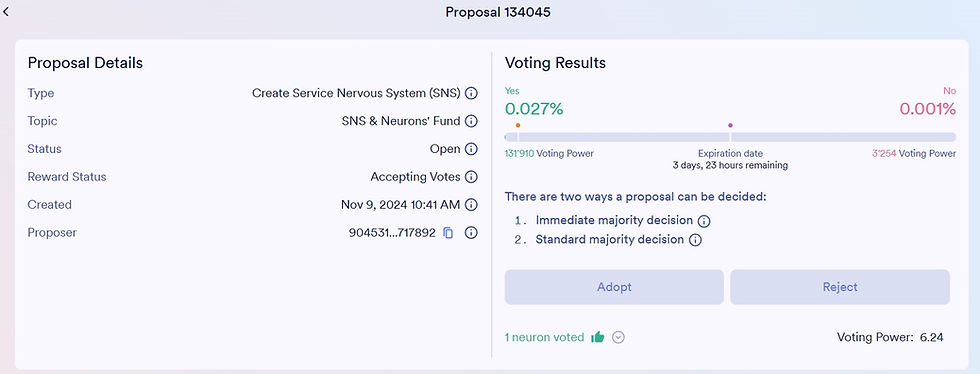What is the Impact of Decentralization in Blockchain Technology?
- EKOKE
- Jun 2, 2024
- 2 min read

In blockchain, decentralization refers to the transfer of control and decision-making from a centralized entity to a distributed network.
This concept is foundational to blockchain technology and distinguishes it from traditional centralized systems.
The Essence of Decentralization
In a centralized system, a single authority or a select group of entities hold control over the network.
They manage data storage, processing, and decision-making, often leading to potential risks like single points of failure, data breaches, and manipulation.
Decentralization mitigates these risks by distributing control across a network of participants, known as nodes.
How Blockchain Achieves Decentralization
Blockchain achieves decentralization through a peer-to-peer (P2P) network where each node maintains a copy of the entire blockchain.
Transactions are verified and recorded by consensus mechanisms such as Proof of Work (PoW) or Proof of Stake (PoS).
These mechanisms ensure that no single node can control the entire network, promoting transparency and security.
Benefits of Decentralization
Enhanced Security:
The distributed nature of blockchain makes it difficult for malicious actors to alter data, as they would need to gain control of a majority of the nodes.
Increased Transparency:
All transactions are recorded on a public ledger, making it easier to trace and verify data.
Resilience:
Decentralized networks are more robust against failures, as the system does not rely on a single point of control.
Trustless Interactions:
Participants can engage in transactions without needing to trust a central authority, relying instead on cryptographic proofs.
Challenges of Decentralization
Scalability:
Decentralized networks often face challenges in handling large volumes of transactions quickly.
Complexity:
Setting up and maintaining a decentralized network can be more complex than a centralized system.
Energy Consumption:
Consensus mechanisms like PoW can be energy-intensive, raising environmental concerns.
Real-World Applications
Cryptocurrencies:
Bitcoin and Ethereum are prime examples of decentralized digital currencies that operate without a central authority.
Decentralized Finance (DeFi):
Platforms like Uniswap and Compound enable financial transactions such as lending and trading without intermediaries.
Supply Chain Management:
Blockchain can track products from origin to consumer, enhancing transparency and reducing fraud.
Decentralized Autonomous Organizations (DAOs):
DAOs are organizations governed by smart contracts, allowing for decentralized decision-making and operations.
The Future of Decentralization
As blockchain technology evolves, the trend towards decentralization is expected to continue, impacting various industries beyond finance.
Innovations in scalability solutions, such as sharding and layer-2 protocols, aim to address current limitations.
Ultimately, decentralization represents a paradigm shift towards more democratic, secure, and transparent systems.
In conclusion, decentralization in blockchain marks a significant departure from traditional centralized models, offering numerous benefits and opportunities for innovation.
Understanding its principles and challenges is crucial for harnessing the full potential of this transformative technology.




Comments